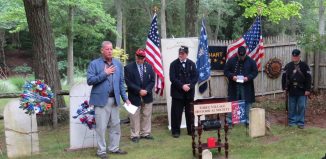Between You and Me: There is (almost) always another way
By Leah S. Dunaief

If presented with a decision you do not wish to make, especially if told you have no choice, don’t do it. Don’t accept the unacceptable because you are told there is no other way to go. There is (almost) always another way. I will share with you a true story that recently happened to make my point. It may seem like the telling of a miracle.
A man I know, who lives many hundreds of miles away, was having abdominal pain and his abdomen was somewhat distended, so he made an appointment and went to see his primary care physician. The doctor palpated his distressed area, front and back, and sent him for imaging tests. Of particular concern was the fact that the patient had come into this world with only one kidney. When the results came back, the prognosis wasn’t good. He was sent by his doctor to an oncologist.
At this next appointment the grim news was confirmed. He had a cancerous tumor on the kidney, and the organ would have to be removed. That meant he was fated to be on dialysis the rest of his life. The oncologist then sent the patient along to an oncology team that specialized in cancerous kidney surgery in a big city hospital. The appointment was for four days later, and while he waited, the man did extensive research on the internet, learning everything he could about cancer of the kidney. At that next visit, the diagnosis was repeated and the team urged what they believed to be the inevitable: arrange to have the stricken kidney removed.
Three doctor appointments, and at all three, there was agreement as to the diagnosis and treatment. Realizing that he was about to have his life altered, and determined to make one more try at changing the outcome, he returned to the internet. One physician in particular, the renal department chairman of a research hospital, had been impressively profiled. The hospital was in a different part of the country, and COVID-19 was beginning to close down most airline flights. With little expectation of actually being seen by this specialist, and while he was worried about how he might get there and return, he nonetheless picked up the phone and called the department. He was given an appointment almost immediately. He almost didn’t accept it when he was told that he couldn’t bring his test results with him, that those tests would have to be done all over again. But in the end, he went.
It took three flights before he reached his destination, and together with his family, he checked into the hotel opposite the hospital, as he had been instructed to do.
For the next two days, there were extensive tests, and then the chairman told him the conclusion: the chances were 95 percent that they could save his kidney. He wheeled around and hugged the doctor.
Three days after the surgery, which involved a technique called modelling accompanied by 3500 pictures of the diseased kidney, he walked out of the hospital, holding his family tightly around him. The doctors told him the wondrous news. He was cancer free. The tumor had not yet begun to spread.
He had found the right person to deal with his problem because he refused to accept the original path laid out before him, even though he had been told there was no choice. He was determined to find another way, creative in his casting about for an alternative and tenacious enough to transcend the obstacles on his way to a successful outcome.
I have known this story for more than a month, thrilled by its outcome yet not wanting to invade the privacy of the principals. So I have not identified any of the people or institutions involved. But I believe it is an experience that must be told to be of possible help for others. And the choices one is presented with don’t have to be life threatening. They can just be part of daily life. The moral is still the same.







